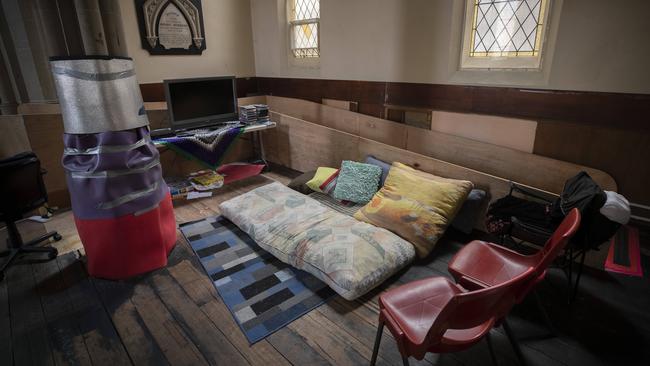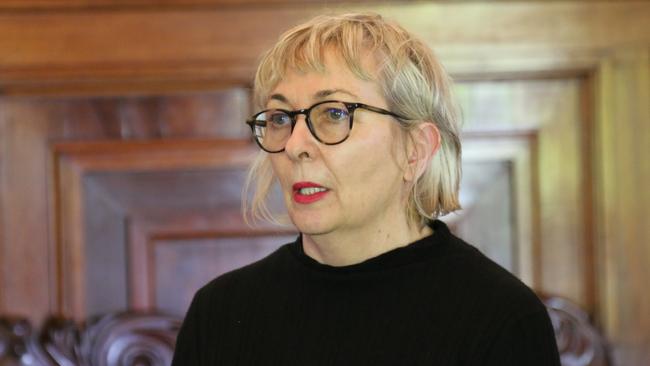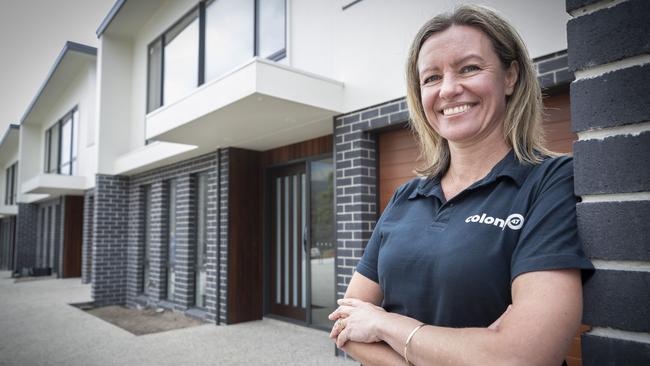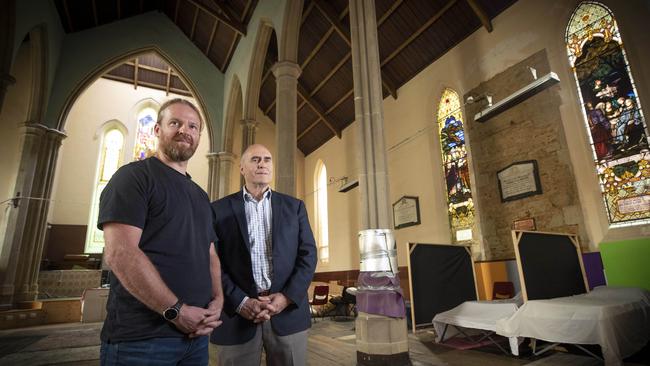Tasmanian not-for-profits struggling to keep up with cost of living, Shelter Tasmania says
As the cost of living continues to skyrocket, it’s not just households feeling the pinch — our charities and non-profit organisations are also struggling to make ends meet.

Tasmania
Don't miss out on the headlines from Tasmania. Followed categories will be added to My News.
Tasmanian charities and community organisations have been left stretching their budgets to meet an increased demand, as the increasing cost of living affects their bottom lines.
Shelter Tasmania CEO Pattie Chugg said homeless services, shelters and community housing providers had all felt the sting.
She said many were concerned they would be unable to meet growing demand because funding wasn’t going as far.
“The state budget is providing indexation of only 2.25 per cent to the grants that services receive to do their work, with a top up to four per cent as an additional payment. But this is nowhere near the increased costs of running the services,” Ms Chugg said.
“The latest wage rise will be 5.75 per cent, inflation is around six per cent, insurance is going up by more than 10 per cent every year, rents for buildings and the costs of heating are increasing, and everything needed to get new homes ready for tenants costs more to buy.”
Ms Chugg said organisations needed additional funding.
“Services have been underfunded in real terms for years now, as the levels of indexation have been much lower than the increased costs of wages, rents, transport, and all the items that services use every day,” Ms Chugg said.

“There needs to be a level of funding that matches the level of need, and the cost of running services. It is not complicated.”
Colony47 CEO Dianne Underwood said the organisation had been left with the options to either reduce services or self fund the increasing gap between income and costs.
“This year the Tasmanian Government provided us with 4 per cent indexation on our funding agreements, [recently] the Fair Work Commission handed down a national wage increase of 5.75 per cent,” Ms Underwood said.
This is fantastic news … however, has left us with a 1.75 per cent gap between our funding and salary costs.
“The gap between our income and the growth in our costs is even larger than this due to years of indexation not keeping pace with CPI and the major shifts in structural costs brought about by our long-term organisational response to Covid-19.”

The organisation has chosen to self fund the gap, but fears it won’t be sustainable.
Hobart City Mission has experienced 66 per cent increase in demand for its services since 2020, while and the number of people on the waiting list for emergency relief appointments increased by 33 per cent since August 2022.
CEO Harvey Lennon said financial donations had not dropped, but there were pressures on all programs.
“We’ve managed to maintain our current services at this stage. But there is a significant need to increase our services to meet the growing demand, for housing and food support,” he said.

Mr Lennon said there had been a drop in other donations.
“We have a lot of kind-hearted donors … however it seems that everyone is feeling the squeeze,” he said.
“A lot of donations of food and hygiene items have slowed down recently, as everyone deals with increasing cost.”
A Tasnmanian government spokesperson said the government was committed to funding a range of housing and homelessness services.
“We acknowledge that community service organisations are feeling the effects of rising costs on many aspects of their operations,” they said.
“This is why we are providing a total indexation rate of four per cent in 2023-24 for those organisations that received an indexation bonus in August last year.
“Through Homes Tasmania, we invest over $38m each year in specialist homelessness services, and this funding will increase as housing and homelessness services expand or new services begin operation.”





